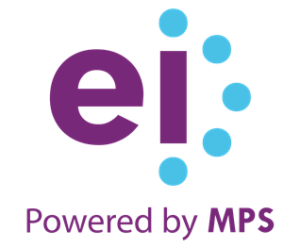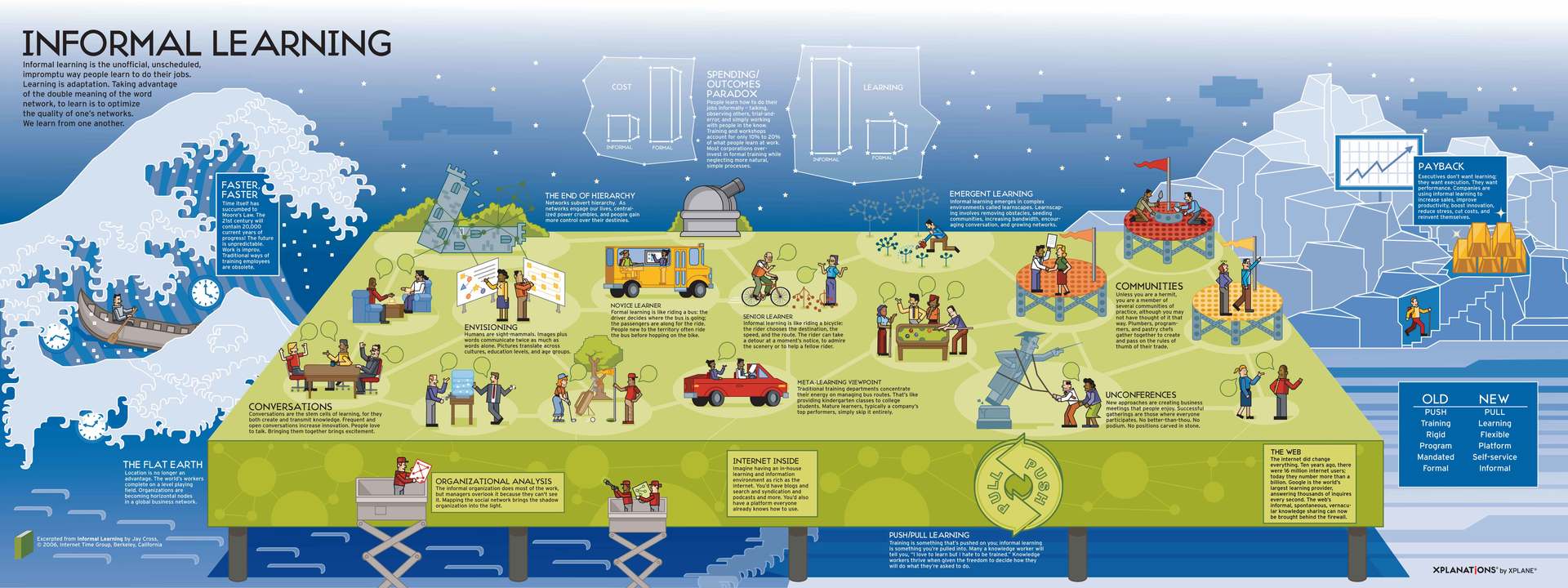Informal Learning In The Workplace: 8 Benefits
Before getting into how you can leverage on informal learning in your workplace, it is important to understand the key differences between formal and informal learning.

While the jury is divided on the benefits and the impact of informal training, I believe that instead of having a formal vs. informal training debate, the right approach is to encourage a blend of both at workplace. This judicious blend can meet your organization’s training needs and learning outcomes, and more significantly, help create a culture that promotes "learning as a continuum".
What Is Formal Learning?
Formal learning is structured learning delivered through programs that could be online, face-to face (Instructor Led Training or ILT), or blended.
Based on Training Needs Analysis (TNA), learning outcomes are identified, and specific training programs are designed to meet them. These could be facilitated (ILT), online (eLearning or mLearning), or blended.
Creating formal training programs requires specialized expertise and access to varied talent pool, comprising Subject Matter Experts, Instructional Designers, Visual Designers, technology experts, and so on. This is associated with high costs and longer lead time to develop and deploy.
L&D teams, in conjunction with business units, define how the formal training needs to be delivered, tracked, and consumed. The learner doesn’t have a say in any of these aspects, though.
What Is Informal Learning?
Informal learning, on the other hand, gives control to the learners to choose the learning content from various sources, based on their interest, preferences, and relevance. These can be consumed at the learner’s pace.
Informal learning need not happen from structured content alone. It can happen any time during the day including interactions with colleagues, seniors, or coaches.
- As a logical extension, informal learning will not have any set methodology, which is always associated with formal learning.
- You will note that informal learning allows us to satisfy our curiosity and, in the process, helps to improve our knowledge base, pick up a new technique, or hone an existing skill.
- It is spontaneous and can happen any time the learner sees something that piques their curiosity or will add value to their job.
It is worthwhile to note here that successful usage of informal learning rests on the learners. The profile of a learner who invests in informal learning is typically an individual who is goal-oriented and is always on the lookout to explore, experiment, and learn.
What Are The Benefits Of Informal Learning?
As children, we are naturally tuned to learning informally. In our formative years, it is informal learning that keeps us revved and mentally active and helps us learn, often without even realizing it, as new vistas of knowledge unfold.
Having this hunger for learning and investing time on this can keep us ahead of the curve both in life and particularly at work.
Benefits Of Informal Learning For The Learners
Let us see what specific benefits informal learning brings in for the learners:
- Learning is more focused, as it is fully driven by the learner.
- Learning is more fulfilling –As adult learners, we want autonomy and control. With informal learning, we are in full control of what we are exploring and learning.
- Unlike formal learning, which can often become a bitter pill, iInformal learning is more fun and happens at our pace, based on our interest.
- We can begin without any significant learning plan. Today, we have access to so much information, particularly online, that can be used to continuously acquire new learning.
- Without the pressure of having to clear a test, get a decent score, and perform (show its application on the job), we find it easier to dive into and sustain the momentum of Informal learning.
- On the other hand, a colleague or a mentor would also find it a lot easier to participate in an impromptu discussion of knowledge share. In the case of formal training, they will need to prepare in advance, schedule the session, ensure the target profile turns up, and so on.
Benefits Of Informal Learning For The Organization
From an organizational perspective, informal learning:
- Facilitates creation of the blueprint for a "learning organization".
- Provides avenues for collaboration between employees.
What Are The Ways In Which Informal Learning Can Happen In A Workplace?
Without realizing, we are continuously learning informally at work too (over coffee, in discussions before scheduled meetings begin, or as you step out for breaks).
You can possibly identify some of the following situations:
- Sharing a tip by sharing the highlight of a "deal" closed by you and what you did differently to beat the competition (as you were waiting for the Sales team review meeting to begin).
- Sharing a best practice that helped you cut down the time of a file you produced.
- Showing a new inductee how to use the in-house Project Management tool (as you notice him struggling with it in the morning).
- Sharing the newsletter you received as you logged in (this resonated with the challenge you had discussed in the monthly review the previous day).
- Checking online for tips that help you manage new team members.
Organizations can certainly foster this approach by providing:
- Semi-structured forums for knowledge share.
- Curated content.
- Flexibility for learners to share inputs (for a specific mandate).
Informal learning can also be integrated to support formal learning programs. You can have pre/post sessions that haveinformal learning avenues for employees to exchange ideas, thoughts, tips, and best practices.
I hope this article provides cues to see the benefits and the value of informal learning at your workplace. I truly believe in its power to promote continuous learning. If you have any feedback or suggestions, do contact me at [email protected].
Read More:
- Why Adopt Microlearning – 15 Questions Answered
- 5 Steps To Implement The Social Learning Strategy In Your Corporate Training
- How Can You Use Content Curation In Your L&D Strategy?
- Performance Support Tools – Tips And Strategies To Boost Employee Performance









